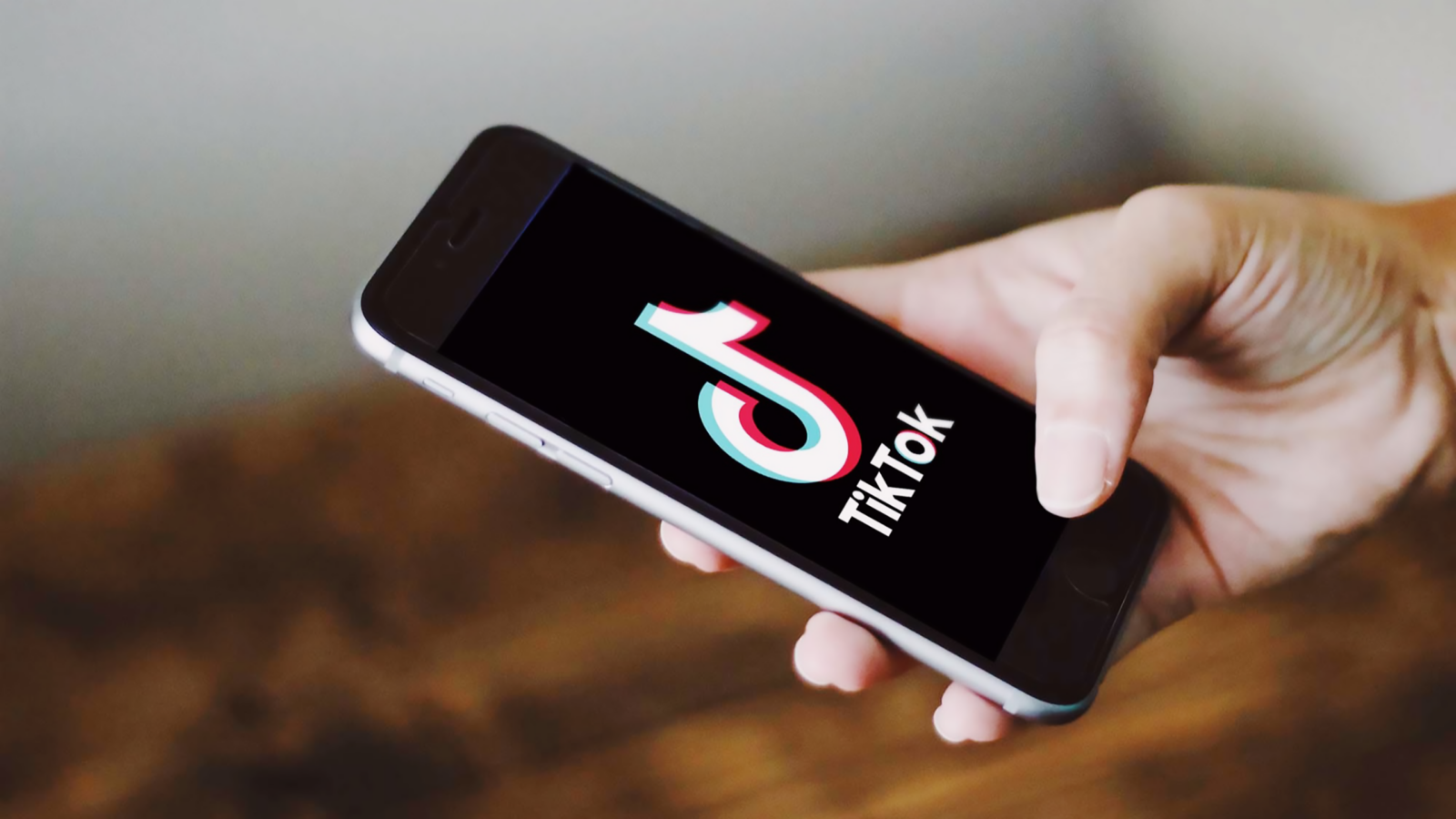Good morning.
Swoosh.
Everybody’s new favorite sports star, college basketball player and WNBA prospect Caitlin Clark, has reportedly signed an eight-year shoe deal with Nike worth $28 million. That’s about 83 times what she’ll make in the WNBA over the next four years. And when adjusted for inflation, it’s substantially larger than Michael Jordan’s first Nike deal in 1984. Give it a few years and Ben Affleck might be making a movie about Air Clark.
TikTok Is Ready to Sue Over Potential US Ban

No more Mr. Nice Lobbyist.
The House of Representatives passed a bill over the weekend mostly geared toward foreign aid packages for Ukraine and Israel. But tagged onto that bill was legislation that would ban TikTok in the US if its China-based parent company, ByteDance, doesn’t divest it. According to a memo reported by Bloomberg, TikTok is ready to lawyer up. And the company’s track record for legally derailing proposed bans is so far pristine.
Here We Go Again
Former President Trump tried to ban the platform with an executive order in 2020 that cited TikTok as a national security threat that granted the Chinese government access to Americans’ data. TikTok successfully challenged that order in court long enough for another election, and President Joe Biden issued a new executive order in 2021 annulling his predecessor’s ban, stating that “rigorous, evidence-based analysis” must be conducted to assess the risks of China-owned apps and software.
Now, despite TikTok’s various attempts to convince US lawmakers that it keeps user data safe (or at least what constitutes “safe” relative to other social media companies), we’ve come full circle. The House passed a bill last month that would force a sale of TikTok, but it stagnated in the Senate. The new bill could be voted on in the Senate as soon as Tuesday, and TikTok is ready with a legal strategy:
- Bloomberg reported that Michael Beckerman, TikTok’s head of public policy for the Americas, sent a memo to staff saying, “At the stage that the bill is signed, we will move to the courts for a legal challenge.”
- Beckerman suggested that TikTok would argue the bill would be a “clear violation” of TikTok users’ First Amendment rights. There is some precedent for this at the state level; Montana tried to ban TikTok last year, but a federal judge granted a preliminary injunction saying it likely violated the First Amendment.
Wrong Fix: Nick Couldry, a professor at the London School of Economics and co-author of the recent book “Data Grab,” said the new bill does represent a “more serious challenge” than Trump’s attempt. But Couldry believes the bill fails to protect US users from TikTok’s more urgent harm, which is its algorithm that can lead users down rabbit holes. “It is this business model and the sort of algorithm it drives that needs regulating in the interests of US citizens — changing who owns it will do nothing to address its social costs of this algorithm for US society and politics,” he said.
“Though it may be controversial to say it, the Chinese government has been much more effective in regulating the algorithm of TikTok’s Chinese equivalent, Douyin,” Couldry said. The likelihood of the US government cribbing off the CCP is fairly low, however.
Leon Black Discusses Jeffrey Epstein And His Exit From Apollo With Puck’s Bill Cohan
Puck founding partner Bill Cohan just published a series of remarkable stories featuring exclusive conversations with the disgraced billionaire and Apollo co-founder Leon Black.
This series marks the first time the fallen executive has publicly addressed his relationship with Jeffrey Epstein and his years-long affair with Russian model Guzel Ganieva, which directly precipitated his exit from the firm.
You can read all of it for free when you start a 14-day free trial of Puck.
Readers of Bill’s private email Dry Powder are used to this caliber of journalism landing in their inbox twice per week. Every day, Puck’s superteam of 17 industry-defining journalists chronicle the inside conversations happening across Washington, Hollywood, Silicon Valley, media, sports, fashion, and the art market.
You can be the first to receive these essential dispatches by signing up here.
Moderna Is Fighting Pfizer, BioNTech over mRNA Patent
Harry Truman once said, “’It is amazing what you can accomplish if you do not care who gets the credit.” After one pandemic, a medical breakthrough, and millions of lives saved, Moderna does care who gets the credit, and considers itself to be the deserving one.
The biotech player plans to take its COVID vaccine peers to court on Tuesday, arguing that Pfizer and BioNTech infringed on two of its patents to develop their mRNA COVID vaccines.
Patent Drop
The mRNA technology has been a medical breakthrough and a catalyst for further innovation. According to the European Patent Office, 2,300 mRNA-related patents were filed as of 2021 — and nobody holds more than Moderna with 96 of them. Two of those are at the center of Tuesday’s court case, heard by the UK’s High Court, as well as a similar case on pause in the US: The first pertains to mRNA vaccines designed to combat respiratory viruses and the second focuses on how mRNA vaccines are delivered.
The legal battle hinges on two key questions — the first is the efficacy of Moderna’s patents. In the US trial, Pfizer and BioNTech alleged that a similar delivery-focused patent filed was “unimaginably broad.” The second question asks: When exactly did the pandemic end? Moderna initially vowed in October 2020 that it would overlook IP infringements until the pandemic was over. The World Health Organization declared the end of its “global health emergency” in March of last year, but Moderna contends that the crisis ended about a year earlier in wealthier countries. Moderna also says it was willing to license the tech on “commercially reasonable terms” — and now wants to be paid back by rivals for vaccine revenue generated since then.
Winning the case would potentially open up an important revenue stream for the company, just when it needs it most:
- In 2022, Comirnaty, the COVID vaccine co-developed by BioNTech and Pfizer, generated a combined $56 billion in sales for the two companies. Last year, Cominarty generated $4.3 billion for BioNTech and $11.2 billion for Pfizer.
- Earning back-paid royalties on those sales would be a major boon for Moderna, whose Spikevax is its only product on the market. Last year, sales fell to $6.7 billion, down from $18.4 billion in 2022.
Future Proof: “The sales of these products have fallen off a cliff so it’s all about past damages,” Pinsent Masons IP lawyer Christopher Sharp told the Financial Times. That being said, it could be about the future, too — given the promise of mRNA technology to treat all types of medical quandaries. Charlie French, an intellectual property lawyer at London law firm Bristows, told the FT: “Potentially, this is much broader than Covid vaccines or vaccines in general.”
NYSE Polls Market Players About Moving to Around-the-Clock Trading
New York Stock Exchange bells — which began as Chinese gongs and have signaled the opening and closing of trading days since the late 1800s — could soon be outta work. The NYSE has begun polling participants on switching to a 24/7 trading schedule similar to how cryptocurrencies operate, the Financial Times reported.
Ring Ring
Though the NYSE’s official hours are every weekday from 9:30 am to 4 pm ET, plenty of buying and selling occurs outside that window via electronic exchanges. Pre- and after-hours trading allows investors to react to news. If, say, Logan Roy has a stroke at 5 pm, you might want to immediately dump your Waystar RoyCo shares. But extra-curricular trading also comes with risks — orders are slower to execute and you might not get the price you expected.
Now a new era of nonstop action could be coming to the Big Board:
- Many assets including US treasuries, major currencies, and leading stock index futures can be traded nearly every hour of the day, the FT noted. Plus, the pandemic gave rise to gamified retail investment platforms like Robinhood that offer similar flexibility. And cryptocurrencies trade all the time, every day of the week.
- The NYSE is asking participants how investors should be protected during periods of volatility, how overnight staffing should work, and whether “time spent thinking about overnight trading would be better spent on regular market hour trading.”
Can’t Stop, Won’t Stop: Meanwhile, the aptly named startup 24 Exchange, which is backed by billionaire hedge fund manager and New York Mets owner Steve Cohen, is seeking approval from the Securities and Exchange Commission to launch the first 24-hour exchange in the US. So far, no letters to the SEC have raised issues with the proposal, the FT reported. So in addition to spending restless nights betting on your favorite sports teams, there’s a chance you’ll soon be doing the same with Apple and Nvidia shares.
Extra Upside
- A liter of cola: Texas man sues movie theater chain, arguing “deceptive” drink sizes miss the mark by 2 ounces.
- Don’t look up: Amazon cuts California drone deliveries, doesn’t say why.
- The Streaming Revolution Will Be Televised – But It Might Not Be By Netflix. The streaming giant is potentially beginning to show cracks, which has smart investors licking their chops. Check out who The Motley Fool thinks could be poised to explode in this exclusive Stock Advisor report.*
* Partner

